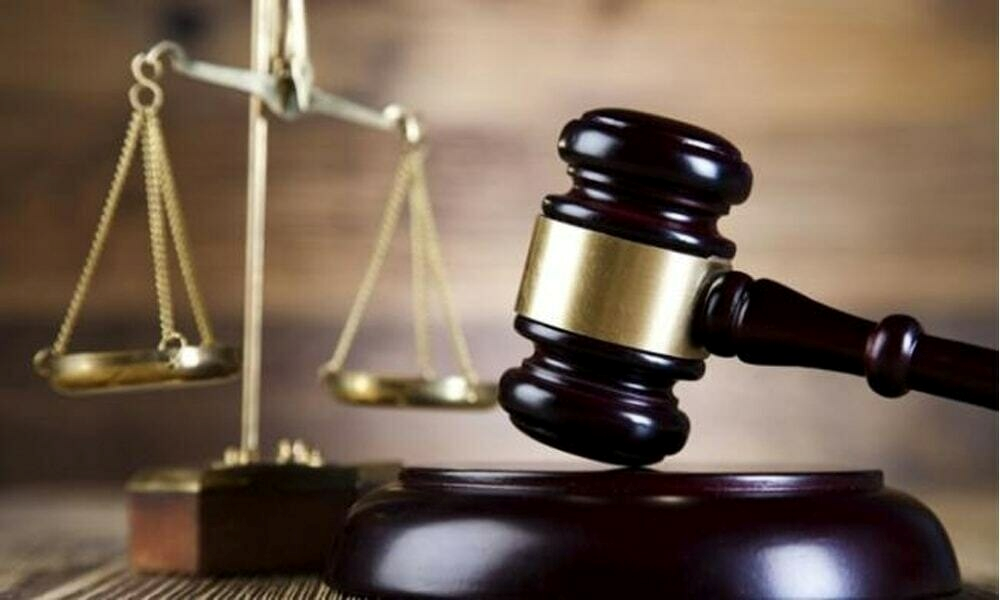
Here in Pakistan it is commonly considered that corruption is no issue in society and everything is going smoothly in accordance with the law and values of Pakistan. However corruption is most favourite and justice is treated like a stepbrother. Therefore, the government and politicians consider that Pakistan is moving forward towards prosperity and advancement and nobody, even the courts including Superior courts, has any objection to this pathetic and teasing position. That’s why corruption is leading the country and the judicial system of Pakistan is facing a big crisis and problems losing its significance.
Surprisingly in the real World corruption and justice are diehard enemies of each other and can’t live together. The presence of either one is considered to be the death of the other one through Constitution, law, Courts or even binding morality and religious bonds.
Justice is ideally meant to be the antithesis of corruption, as it aims to ensure fairness, impartiality, and adherence to the rule of law. While corruption undermines justice by distorting the legal process for personal gain, justice seeks to uphold the principles of accountability, equality, and integrity. Therefore, justice is not a sibling of corruption but its opponent.
In Pakistan, there can be challenges with corruption affecting the justice system, leading to perceptions of injustice or unequal application of the law. Corruption can undermine the rule of law, erode public trust in institutions, and hinder socio-economic development. However, it’s important to note that there are efforts to combat corruption and improve the justice system in Pakistan, including through legal reforms, anti-corruption initiatives, and strengthening of institutions. Achieving a balance where justice prevails over corruption is an ongoing process that requires sustained efforts from various stakeholders, including the government, civil society, and the international community.
Justice and corruption are fundamentally opposed to each other. Justice seeks to uphold fairness, impartiality, and adherence to the rule of law, ensuring that everyone is treated equitably and accountable for their actions. On the other hand, corruption undermines these principles by distorting the legal process for personal gain, leading to injustice, inequality, and erosion of trust in institutions. Therefore, justice can be seen as the enemy of corruption, as it aims to root out corrupt practices and uphold integrity and transparency in society.
Corruption can indeed spread its tentacles throughout society, affecting various aspects of governance, economy, and social fabric. It can infiltrate institutions, weaken the rule of law, hinder economic development, and exacerbate inequality. Corruption diverts resources away from essential services, undermines trust in government, and perpetuates a cycle of injustice and impunity. Therefore, combating corruption is crucial for fostering transparency, accountability, and the rule of law, ultimately contributing to the well-being and prosperity of society as a whole.
When there’s a fair and effective system of justice in place, it can contribute to the prosperity of citizens by ensuring that individuals and businesses can operate within a framework of laws and regulations that protect their rights and promote fairness. However, corruption undermines this system by distorting the rule of law, eroding trust in institutions, and creating unequal opportunities.
Corruption can distort democracy in significant ways. In a democracy, power is meant to be exercised by representatives elected by the people, with decisions made transparently and in the public interest. However, corruption undermines this process by allowing the influence of money, bribery, or illicit deals to sway political decisions and electoral outcomes. It can lead to the concentration of power in the hands of a few, marginalize the voices of ordinary citizens, and erode trust in democratic institutions. Additionally, corruption can hinder the effective functioning of democratic processes, weaken the rule of law, and perpetuate a cycle of impunity and inequality. Therefore, combating corruption is essential for safeguarding the integrity and legitimacy of democracy.
Corruption can certainly undermine justice by distorting legal processes, impeding fair outcomes, and eroding public trust in the judiciary. When corruption infiltrates judicial systems, it can lead to biassed rulings, impunity for the powerful, and unequal treatment under the law. Additionally, corruption can hinder access to justice for marginalized communities and perpetuate a culture of impunity where wrongdoing goes unpunished. Therefore, while corruption may not completely eliminate justice, it can severely compromise its effectiveness and integrity, ultimately weakening the rule of law and eroding the foundations of a just society.
Corruption can indeed pose a significant threat to the fabric of a civilized society. In a civilized society, there is an expectation of fairness, accountability, and adherence to ethical standards in governance, business, and social interactions. Corruption undermines these principles by diverting resources away from essential services, distorting decision-making processes, and perpetuating inequality and injustice. It erodes public trust in institutions, weakens the rule of law, and fosters a culture of impunity where unethical behaviour goes unchecked. Ultimately, corruption can hinder economic development, social progress, and the overall well-being of society, making it a destructive force that undermines the foundations of civilization. Therefore, combating corruption is essential for preserving the integrity and sustainability of civilized societies.
In an ideal society, justice prevails, ensuring fairness, equality, and adherence to the rule of law. However, the presence of corruption can undermine the pursuit of justice by distorting legal processes, favouring the powerful, and perpetuating inequality. Therefore, the presence of corruption often indicates a lack of full justice in society. Conversely, efforts to combat corruption and strengthen institutions can contribute to the promotion of justice by ensuring accountability, transparency, and equal treatment under the law.
Ultimately, the presence of justice and corruption in society is often intertwined, with the extent to which justice prevails depending on the effectiveness of measures taken to address corruption and uphold the rule of law.
When there’s a fair and effective system of justice in place, it can contribute to the prosperity of citizens by ensuring that individuals and businesses can operate within a framework of laws and regulations that protect their rights and promote fairness. However, corruption undermines this system by distorting the rule of law, eroding trust in institutions, and creating unequal opportunities. This can ultimately lead to economic stagnation, social unrest, and the breakdown of societal systems. So, in essence, a system of ultimate justice can indeed foster prosperity, while corruption can corrode and destroy societal structures and systems.
—
The writer is an Advocate Supreme Court of Pakistan, Law Professor, member International Bar Association and former Assistant Attorney General for Pakistan.





